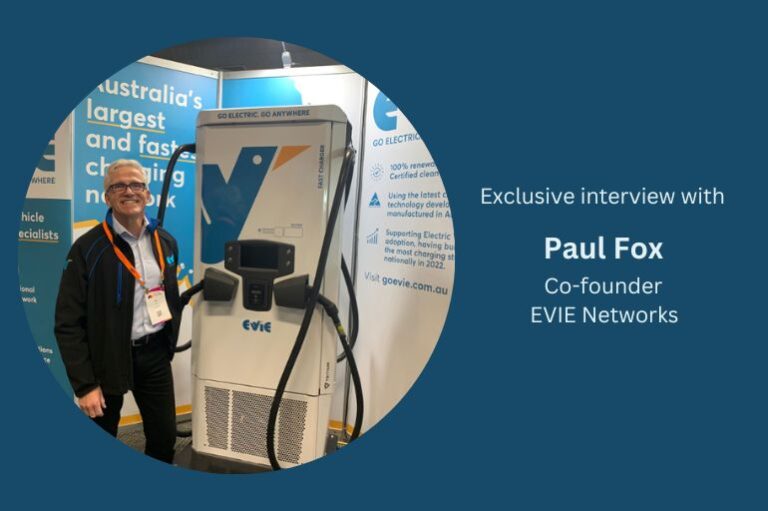Paul Fox, co-founder of EVIE Networks, builder of Australia’s fast charging network, talks with Fleet News Group podcast host Caroline Falls about the exponential growth of electrification infrastructure, enthusiasm for electric vehicles in Australia and the shortage of them here and around the world.
Among EVIE’s projects is, with support of ARENA, the Australian Renewable Energy Agency, the public network of 42 stations on an intercity network stretching from Adelaide, in South Australia, to Cairns, in far north Queensland. This charging network is designed to service and be affordable for work vehicles.
EVIE also has a fleet services unit to supply charging infrastructure at company depots and other commercial locations including shopping centres and tourism resorts.
“We aim to provide charging wherever you shop, wherever you eat, wherever you play, and wherever you work, that’s our mission,” said Fox, adding, “We got started in mid 2017. At that time, the world was very different. There were only a few 1,000 EVs in Australia.
“But it was pretty clear that electric vehicles were going to happen.
“Six years later, there’s over 100,000 electric vehicles on the road. Our growth is quite literally exponential… we’re at somewhere around 7-8 percent of new car sales month after month over the last few months. So it’s really happening.
“Lots of people are getting into this for reasons of climate change, and pollution and so on. But in the end, what’s going to be driving it is the basic economics. I often point to the Uber drivers. They drive a lot of kilometres. And they’ve been quite big adopters of EV technology because they know it’s going to save them money. And all those benefits around tailpipe emissions and climate change that just comes with the territory. So we kind of knew at the beginning that it would happen, it was just [a question of] when.”
Fox said he felt on his recent trips overseas how far Australia has come.
“I don’t feel like Australia’s not doing really well, because I think we are now.” In addition, Fox notes, Australians are generally quick to pick up new technology even though in the case of electric vehicles the nation has been considered a laggard. But now they have jumped in it seems Fox expects the gap to close. “Once we get started. We’ve certainly got started now.”
Meanwhile supply shortages are affecting electric vehicle adoption as potential buyers here in Australia and overseas, including in the US, find it difficult to get their hands on the vehicles they want.
Fox talks about attending an event in Detroit, Michigan, USA, aimed at the electric vehicle user experience. He said it was there he appreciated that Australian energy utilities were as advanced, if not moreso, than their U.S. counterparts in the way they are thinking about and developing energy infrastructure to service and manage the trend to EVs.
He also went to the biggest electric vehicle event in the world, the EVS 36 — electric vehicle symposium number 36, this year held in June in Sacramento, California.
“It’s an annual event. That we’ve got up to number 36, tells you something that people have been thinking about this and working on this,” for decades, said Fox.






